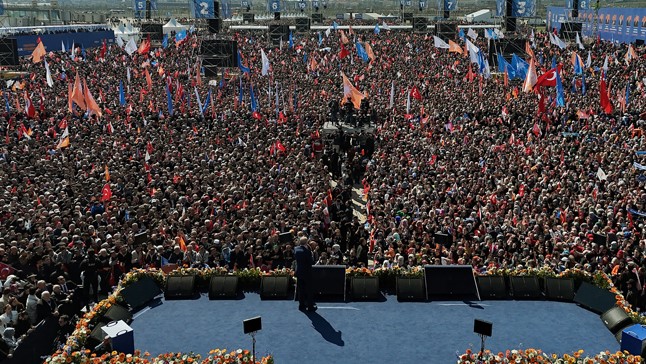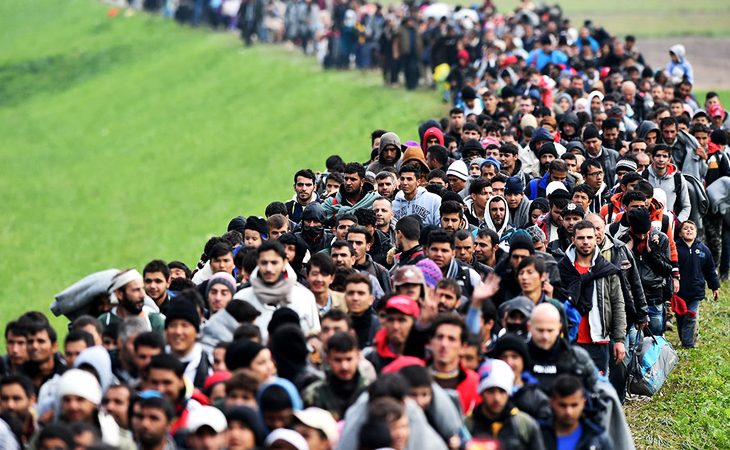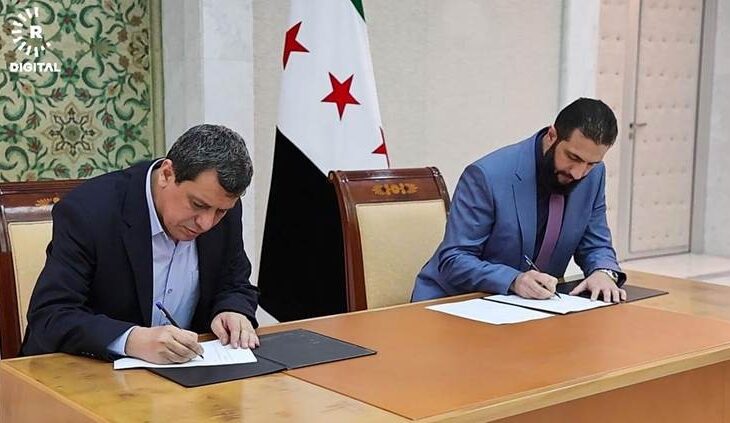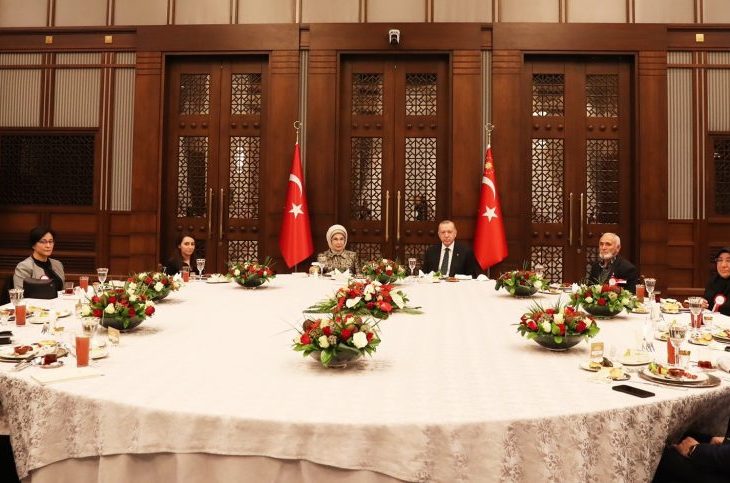Murat Yetkin: If Imamoğlu wins despite all these obstacles, Turkey will wake up to a completely different political environment on the morning of April 1
Güldem Atabay
•
March 25, 2024 11:35 am
If there were more space in the headline, it should have read as follows: President Tayyip Erdoğan dispatched Foreign Minister Hakan Fidan and Interior Minister Ali Yerlikaya to bolster support for Murat Kurum in Istanbul, almost as if he was assigning them an "Eastern Service", yet he acknowledged that the attendance at his March 24 Istanbul rally was less than half the size of his previous gatherings.
Setting aside the debate over the accuracy of the figure of 650,000 provided by Erdoğan, it's notable that he had anticipated a turnout of 1.5 million for his election rally, dubbed "Great Istanbul Again". Historically, even gatherings solely comprising AK Party supporters would densely pack the rally area, with reports from the Governorship of Istanbul confirming figures of 1.5 million attendees. Had voters from allied parties such as MHP, BBP, HüdaPar, and DSP, who remain part of the People's Alliance, joined on Sunday, the rally could have potentially met or exceeded this figure, transforming into a formidable display ahead of the March 31 elections.
However, this scenario did not unfold as anticipated. Despite favorable spring weather conditions, the attendance fell significantly short of the anticipated 1.5 million, failing to even reach half of that figure.
"If anyone is confused..."
Erdoğan's statement, "We are used to 1.5 million people in this square. Today, 650,000 people... But we are not stopping," raises questions about his intentions. It's possible that he made this remark to manage expectations and discourage his supporters from fixating on crowd sizes. Alternatively, he may have aimed to convey a message urging voters not to be swayed by competition and instead focus on casting their votes for his party.
Erdoğan's subsequent remarks, encouraging supporters to reach out to undecided individuals and address any concerns they may have, suggest a concerted effort by the AK Party, MHP, and other allies to engage with voters and alleviate any uncertainties.
However, if confused citizens inquire about the rumored announcement of a salary increase for pensioners at AK Party rallies and are met with responses like "it will be announced after the election," it remains to be seen whether this will sufficiently address their confusion. The effectiveness of such explanations will likely become evident on the evening of March 31st.
Fidan and Yerlikaya's "oriental service"
The significance of Erdoğan's disheartening remark "We are used to 1.5 million," particularly in the context of his recent outings with Foreign Minister Fidan and Interior Minister Yerlikaya in Istanbul, cannot be overlooked.
Although it's true that the CHP mayor of Istanbul Metropolitan Municipality recently highlighted the presence of 17 ministers campaigning for Murat Kurum, Fidan and Yerlikaya stand out among them due to their broader influence and reputation beyond the AK Party base.
Yerlikaya holds a key role in maintaining public order in the country, including ensuring the integrity of the electoral process. He has endorsed Kurum's commitment to genuine municipal governance.
As for Fidan, entrusted with safeguarding Turkey's interests and reputation, his endorsement of Kurum's capabilities during a meeting with young people is notable. Despite the absence of inquiries from the attendees regarding the Anagold gold mine disaster or Canal Istanbul, projects associated with Kurum's portfolio, Fidan's support carries significant weight.
If Imamoğlu wins against all odds
It's evident that both Fidan's and Yerlikaya's backing of Murat Kurum is more of a mandatory "Eastern Public Service" to avoid potential repercussions from Erdoğan. However, I doubt they view it as a performance to enhance their own reputations or that of Turkey.
Moreover, let's not overlook the fact that Mehmet Şimşek, the Minister of Treasury and Finance, sought "strong support" during a meeting with business figures, suggesting that if Kurum wins - presumably with government backing - their businesses will thrive.
Erdoğan's intense focus on winning the Istanbul election against İmamoğlu is apparent, as he mobilizes not only his political allies but also all available state resources. The support shown by Şimşek, Fidan, and Yerlikaya for Kurum underscores this commitment. Nearly all opposition parties are similarly engaged in efforts to weaken İmamoğlu and the CHP. Additionally, there are factions within the CHP that prioritize their own interests, further complicating matters.
If İmamoğlu wins despite all these obstacles, Turkey will wake up to a completely different political environment and new political balances on the morning of April 1.
 Erdoğan miting
Erdoğan miting





